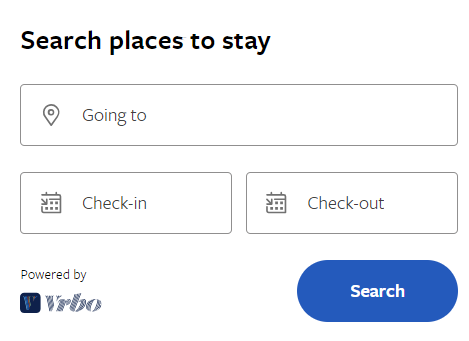From Ancient Ruins to Hidden Gems: Heritage Tourism Offers the Ultimate Adventure for Thrill-Seekers
Are you a thrill-seeker looking for your next adventure? Do you crave the excitement of exploring ancient ruins, uncovering hidden gems, and immersing yourself in the rich history of different cultures? If so, heritage tourism may be the perfect choice for you. From the majestic pyramids of Egypt to the mysterious temples of Cambodia, heritage tourism offers a unique blend of history, adventure, and cultural exploration that will satisfy even the most adventurous spirit.
Exploring Ancient Ruins
One of the most thrilling aspects of heritage tourism is the opportunity to explore ancient ruins that have stood the test of time. From the awe-inspiring ruins of Machu Picchu in Peru to the ancient city of Petra in Jordan, these sites offer a glimpse into the past and a chance to walk in the footsteps of ancient civilizations. Whether you’re hiking through dense jungles to reach a hidden temple or marveling at the precision of ancient stone carvings, exploring ancient ruins is sure to ignite your sense of adventure.
- Visit the Great Wall of China and walk along its ancient ramparts.
- Explore the archaeological site of Pompeii and witness the preserved remains of a Roman city.
- Climb to the top of the Acropolis in Athens and take in panoramic views of the city below.
Uncovering Hidden Gems
While ancient ruins may be the main draw of heritage tourism, don’t overlook the hidden gems that can be found off the beaten path. Whether it’s a secluded monastery tucked away in the mountains or a forgotten castle perched on a cliff, these hidden gems offer a sense of discovery and adventure that can’t be matched. By venturing off the typical tourist trail, you’ll uncover hidden treasures and create unforgettable memories that will last a lifetime.
- Discover the ancient rock-hewn churches of Lalibela in Ethiopia, a UNESCO World Heritage Site.
- Explore the medieval town of Český Krumlov in the Czech Republic and wander its cobblestone streets.
- Visit the remote Moai statues of Easter Island and learn about the island’s mysterious history.
Tips for the Ultimate Adventure
When embarking on a heritage tourism adventure, keep these tips in mind to make the most of your experience:
- Research the history of the sites you plan to visit to enhance your understanding and appreciation.
- Stay open to new experiences and be willing to step outside your comfort zone to truly immerse yourself in the culture.
- Respect the local customs and traditions of the places you visit to ensure a positive and meaningful interaction.
Conclusion
From ancient ruins to hidden gems, heritage tourism offers the ultimate adventure for thrill-seekers looking to explore the rich history of different cultures. By venturing off the beaten path and immersing yourself in the wonders of the past, you’ll create unforgettable memories and embark on a journey of discovery that will leave you inspired and intrigued. So pack your bags, grab your camera, and get ready for the adventure of a lifetime!
FAQs
Q: What should I pack for a heritage tourism adventure?
A: When packing for a heritage tourism adventure, be sure to include comfortable walking shoes, lightweight clothing for warm weather, a camera to capture memories, and a reusable water bottle to stay hydrated.
Q: How can I stay safe while exploring ancient ruins and hidden gems?
A: To stay safe while exploring ancient ruins and hidden gems, always follow local guidelines and regulations, stay on designated paths, and be mindful of your surroundings at all times.
Top 3 Adventure Travel Tips
- Be open to new experiences and embrace the unknown.
- Research the history and culture of the destinations you plan to visit.
- Stay respectful of local customs and traditions to create meaningful interactions.
Last-Minute Packing Tips
- Pack light and only bring essentials to minimize the weight of your luggage.
- Bring a reusable water bottle to stay hydrated while exploring.
- Don’t forget to pack a portable charger or power bank for your electronic devices.
Testimonials
“Exploring ancient ruins and hidden gems during my heritage tourism adventures has been a transformative experience. I’ve learned so much about different cultures and histories, and I’ve made memories that will last a lifetime.” – Sarah, avid traveler
Fascinating Facts
Did you know that the temple complex of Angkor Wat in Cambodia is the largest religious monument in the world? Spanning over 400 acres, this UNESCO World Heritage Site is a must-see destination for heritage tourism enthusiasts.










![From Historic Sites to Modern Marvels: [city/town]’s Best Cultural Attractions](https://i3.wp.com/cdn.pixabay.com/photo/2017/11/21/00/42/christmas-2967062_960_720.jpg?w=180&resize=180,135&ssl=1)









![Unraveling [destination]: A comprehensive exploration for travelers](https://i1.wp.com/cdn.pixabay.com/photo/2018/05/18/04/00/work-3410295_960_720.jpg?w=180&resize=180,135&ssl=1)










